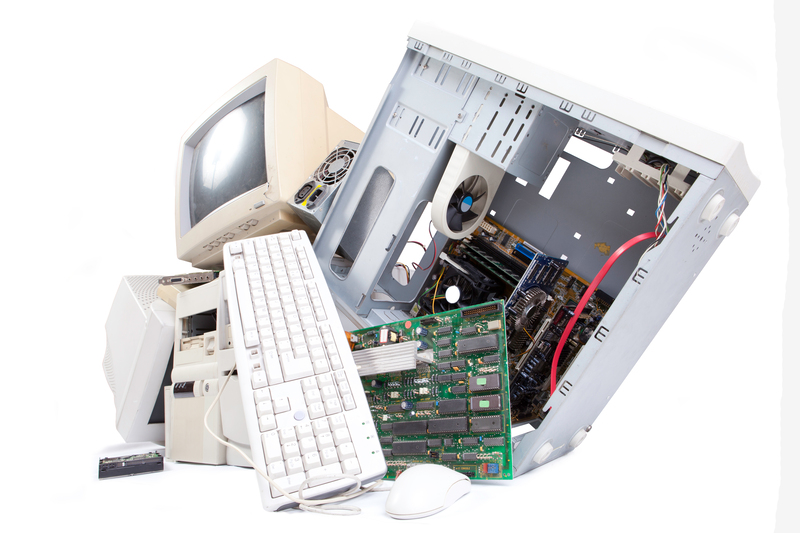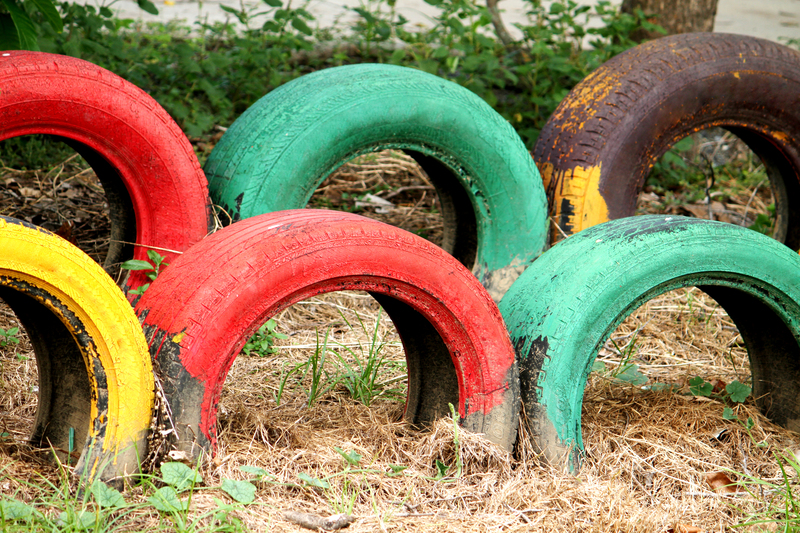Find Peace in Tidiness - The Stress-Busting Advantages of De-cluttering
Posted on 20/09/2025
Find Peace in Tidiness: The Stress-Busting Advantages of De-cluttering
Is your home or workspace crammed with items you rarely use, leaving you feeling stressed, anxious, or overwhelmed? The modern world bombards us with clutter--physical and mental--every day. Discovering tranquility in a tidy environment isn't just a desire; it's a science-backed strategy for improved mental health and well-being. In this comprehensive guide, we'll explore how de-cluttering reduces stress, boosts your mood, and gives you the peaceful, organized life you crave.
What is Clutter, Really?
Clutter isn't just an overstuffed drawer or a congested garage. It's any unnecessary or unused item in your space that's robbing you of focus and serenity. Tidiness brings peace, but understanding what contributes to clutter is the first step towards a more organized, low-stress environment.
- Physical Clutter: Overflowing closets, messy desks, piles of old mail
- Digital Clutter: Unread emails, unused apps, desktop chaos
- Mental Clutter: Lingering tasks, constant notifications, unfinished plans
The Hidden Connection Between Clutter and Stress
Multiple studies have demonstrated a strong correlation between a cluttered environment and increased stress levels. Clutter can hinder our ability to process information and focus. It's not just a visual distraction; it's a psychological burden.
- Visual Overload: Clutter bombards our senses, making relaxation difficult.
- Decision Fatigue: Messes force us to make unnecessary choices, exhausting willpower.
- Procrastination: Clutter can cause us to delay important tasks, creating further anxiety.
A tidy space, on the other hand, fosters a sense of control, accomplishment, and well-being. Letting go of excess frees up mental space for creativity, productivity, and peace of mind.

Benefits of a Tidy, De-cluttered Environment
1. Reduced Stress & Anxiety
Tidiness is directly linked to reduced stress levels. When your surroundings are organized, your mind can relax. Studies from Princeton University Neuroscience Institute found that visual clutter competes for your brain's attention, reducing cognitive performance and increasing stress. Minimizing excess items creates a calm environment where your mind can rest.
2. Improved Productivity & Focus
A de-cluttered space boosts your ability to concentrate on tasks. When everything has a place, you spend less time searching and more time doing. Distraction is minimized, and your brain can operate efficiently.
- Workspaces free from clutter increase efficiency and decrease errors.
- It's easier to develop good habits and stick to routines when things are organized.
3. Higher Quality Sleep
Did you know a messy bedroom can disrupt your sleep? Scientific research reveals that clutter in the bedroom increases feelings of restlessness and insomnia. By creating a serene, tidy sleep sanctuary, you set the scene for restorative sleep and less nighttime anxiety.
4. Enhanced Mood & Self-esteem
The act of de-cluttering can be empowering. Each decision to let go of an unnecessary item is a boost to confidence. Celebrating small victories--like an organized pantry or decluttered closet--builds self-esteem and a positive outlook.
5. More Time and Energy
When spaces are tidy, it's easier to clean and maintain your home. Less time spent sorting, cleaning, and searching equals more time and energy for what truly matters--relationships, hobbies, and relaxation.
The Science Behind De-cluttering and Stress Reduction
Researchers from UCLA's Center on Everyday Lives and Families found a direct link between high "stuff" density and increased cortisol (the stress hormone) in mothers. Spaces with visible mess cause our brains to perceive unfinished work, keeping us in a state of low-level anxiety.
Conversely, spaces that are tidy and organized send "all is well" signals to the brain. This induces calm, lowers stress, and fosters creativity and relaxation.
Neuroscience Says: Cluttered Spaces = Cognitive Clutter
The cognitive impact of clutter is profound. Our brains like order, and constant exposure to disorganization makes it harder to focus. When you de-clutter, you literally rewire your brain for peace and clarity.
Practical Steps for Finding Peace Through De-cluttering
Ready to embrace the stress-busting power of tidiness? Here's how to begin your journey towards a peaceful, clutter-free environment:
-
Start Small:
- Tackle a single drawer, shelf, or surface at a time.
- Quick wins fuel motivation to keep going.
-
Sort and Categorize:
- Make piles: Keep, Donate, Recycle, Toss.
- Ask yourself: Do I use this? Does this bring me joy?
-
Establish Clear Zones:
- Everything needs a dedicated place.
- Use bins, baskets, or trays to group like items.
-
Maintain Continuously:
- Set aside 5-10 minutes daily to tidy up.
- Regularly review and reassess possessions.
-
Seek Support if Needed:
- Enlist a friend or professional organizer.
- Use de-cluttering checklists and resources for accountability.
Ward off Mental Clutter, Too
Decluttering isn't just about stuff; it's about mind space. List lingering projects, deadlines, or unresolved worries. Find ways to close those loops, delegate, or let go, for ultimate mental peace.
Common Obstacles to Letting Go--and How to Overcome Them
- Sentimental Attachment: Take photos of cherished items you no longer use. Keep a memory box for precious keepsakes, but limit its size.
- "What If" Thinking: Remind yourself that keeping unused items "just in case" often leads to clutter, not preparedness.
- Decision Fatigue: If you feel stuck, decide to keep only what you've used in the past year.
- Lack of Time: Schedule short, regular de-cluttering sessions instead of marathon cleanouts.
Maintaining Long-Term Tidiness for Sustainable Peace
The path to lifelong peace isn't a single cleaning spree, but a maintained lifestyle. Here are some proven strategies:
- Adopt a "one in, one out" rule: Bring home something new? Let another item go.
- Establish daily and weekly routines: Quick resets prevent mess from accumulating.
- Practice mindful shopping: Buy only what serves a purpose or sparks joy.
- Prioritize experiences over possessions: Invest energy in meaningful moments, not material goods.
The Emotional Rewards of a Tidy Life
A de-cluttered space provides more than visual appeal. The emotional rewards include:
- A sense of freedom and openness
- Improved relationships with housemates or family
- Greater motivation and inspiration
- Calmness in the face of daily challenges
Decluttering Myths Busted
-
Myth: "I have no time to de-clutter."
Truth: Even 10 minutes a day makes a difference when done consistently. -
Myth: "Tidiness means minimalism."
Truth: You don't need to own the bare minimum--just what serves you best. -
Myth: "Decluttering is only about stuff."
Truth: The biggest benefit is often emotional and mental peace.

De-Cluttering as Self-Care: Finding Inner Harmony
Imagine waking up in a clean, airy space. Imagine coming home to order after a long day. Decluttering is an act of self-respect and self-care. It signals to your subconscious that you deserve peace, clarity, and comfort. By making room in your life--physically and mentally--you also make room for growth, happiness, and connection.
Key Takeaways: The Stress-Busting Power of De-Cluttering
- Decluttering your space is a proven way to reduce stress and anxiety, enhance focus, and improve your mood.
- Tidiness cultivates peace--both at home and in the mind.
- You don't have to do it all at once. Small, consistent steps create lasting calm.
Are you ready to make tidiness your superpower? Begin today, and discover the transformative, stress-busting peace of de-cluttering. Your mind and spirit will thank you.
Start your de-cluttering journey now--find the serenity and clarity you've been searching for!
```
 020 3409 1874
020 3409 1874 020 3409 1874
020 3409 1874




 House clearance
House clearance Rubbish collection
Rubbish collection





